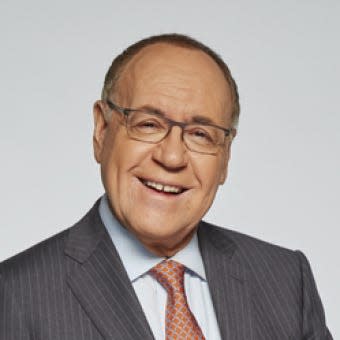Adderall shortage hurt my patient's job performance. He was told to drink coffee instead.
A 27-year-old patient of mine has taken Adderall since early adolescence. A successful bonds trader who works long hours, he gives Adderall part of the credit for his success in business.
But recently he was unable to find the medication in stock, despite checking several pharmacies. His work performance began to suffer, and his therapist told him to temporarily drink more coffee in an attempt to cope without the medication.
The patient had taken Ritalin in the past, so I gave him a trial of generic Ritalin, known as methylphenidate, but he reported back that the new prescription did not have nearly the same effect as Adderall. Because he was still having great difficulty concentrating, I involved a psychiatrist, who increased the dose with some benefit.
The psychiatrists I consult with tell me that this story is far from unique, and that the Adderall shortage and associated shortages of both long and short-acting medications for attention-deficit/hyperactivity disorder (ADHD) have been going on for a long time.
In a letter to the public on Aug. 1, the Food and Drug Administration and the Drug Enforcement Administration contended that the problem is largely due to "record-high prescription rates" and a lack of full production by manufacturers.
That is no doubt correct, but the problem is also more complex.
Treatment guidelines are in place for children and adolescents with ADHD, but they are lacking for adults. The American Professional Society of ADHD and Related Disorders will release those guidelines soon, said Dr. Lenard Adler, director of the adult ADHD program at New York University's Grossman School of Medicine.
Adler, co-inventor of the adult ADHD self-report scale, told me he thinks primary care doctors like me “can diagnose and manage ADHD properly provided they are guided by an evidenced-based approach that includes blood pressure, pulse and EKG (electrocardiogram) monitoring.”
Substantial guidelines already in place in Europe, Canada and Australia can guide us. Decisions to make include “who gets a stimulant and who gets something else,” Adler said.
Opinion alerts: Get columns from your favorite columnists + expert analysis on top issues, delivered straight to your device through the USA TODAY app. Don't have the app? Download it for free from your app store.
ADHD medications are not interchangeable
Adderall is part of a group of drugs known as amphetamine mixed salts. Concerta and Ritalin, as well as their generic counterparts, are methylphenidate, another kind of central nervous system stimulant. The drugs are not interchangeable, and it is difficult to determine how essential they are to normal function, especially by a physician who is not specifically trained in diagnosing and treating ADHD.
As Adler said, we shouldn’t prescribe the medicine simply because it improves performance.
I believe ADHD is increasing for many reasons, including social isolation, problems with socialization both before and during the pandemic, the growing role of social media and the bombardment of stimuli of various kinds.
Will AI replace your doctor? As a physician, I'm worried new tech will hurt patient care.
ADHD combines with other mental health problems, including anxiety and depression, and patients can exhibit difficulty concentrating, poor focusing, irritability, anger, anxiety and lack of restraint.
Treatment can include cognitive behavioral therapy, but more than 60% of patients use medication. According to recent data from the Centers for Disease Control and Prevention, 10% of children ages 6 to 11 and 13% of those ages 12 to 17 suffer from ADHD.
ADHD is underdiagnosed in minority communities
The lack of available medication combines with the great shortage of trained mental health professionals to cause a health care crisis. It may be true that ADHD is overdiagnosed in affluent communities, but there is also evidence that it is underdiagnosed in poorer socioeconomically disadvantaged areas and among minority communities.
The shortage of medication goes beyond a simple problem of supply and demand. For one thing, there is a lack of available active pharmaceutical ingredients coming from China and India. For another, generic manufacturers such as Teva (Adderall) and Takeda (Vyvanse) work from a narrow profit margin and have not kept up with demand in part because of manufacturing problems and in part because of lack of sufficient incentives.
Cancer research was my dad's legacy: I inherited a cancer gene from my dad. He also left me a game plan to live.
What can be done in response?
Given the shortage of doctors with specific training in ADHD or psychiatry, extending guidelines and training to more primary care clinicians, as Dr. Adler suggests, is the next best option.
At the same time, the government must offer incentives to drug manufacturers to produce more of the needed medication.
Don’t get me wrong, we should certainly not jump to medications as a shortcut, but when necessary we need to have the right medicine to use and the properly trained doctors to prescribe it.

Dr. Marc Siegel, a member of USA TODAY's Board of Contributors, is a professor of medicine and medical director of Doctor Radio at New York University's Langone Health. His latest book is "COVID: the Politics of Fear and the Power of Science." Follow him on Twitter: @DrMarcSiegel
You can read diverse opinions from our Board of Contributors and other writers on the Opinion front page, on Twitter @usatodayopinion and in our daily Opinion newsletter. To respond to a column, submit a comment to letters@usatoday.com.
This article originally appeared on USA TODAY: Adderall shortage is still happening. Don't expect a quick remedy
